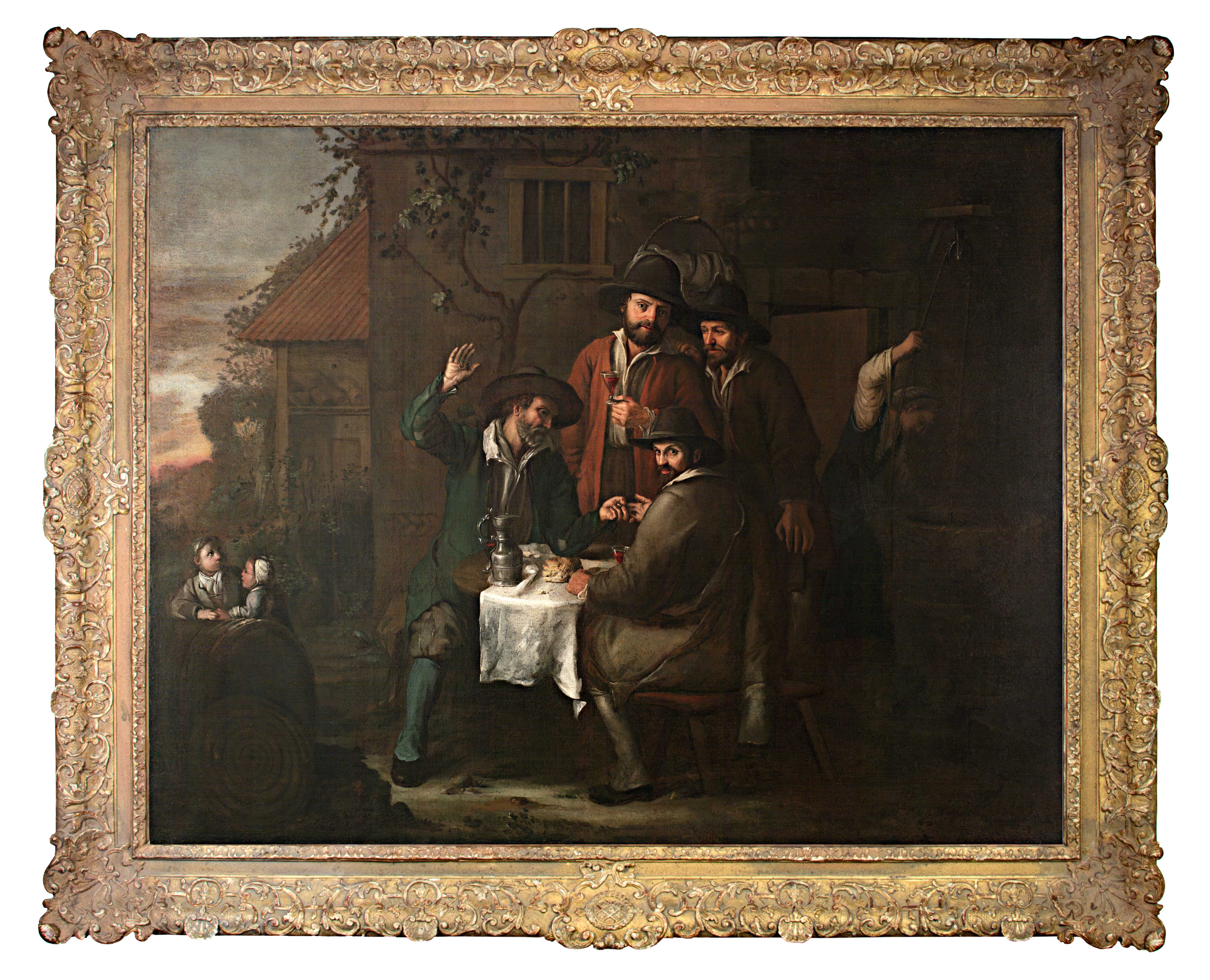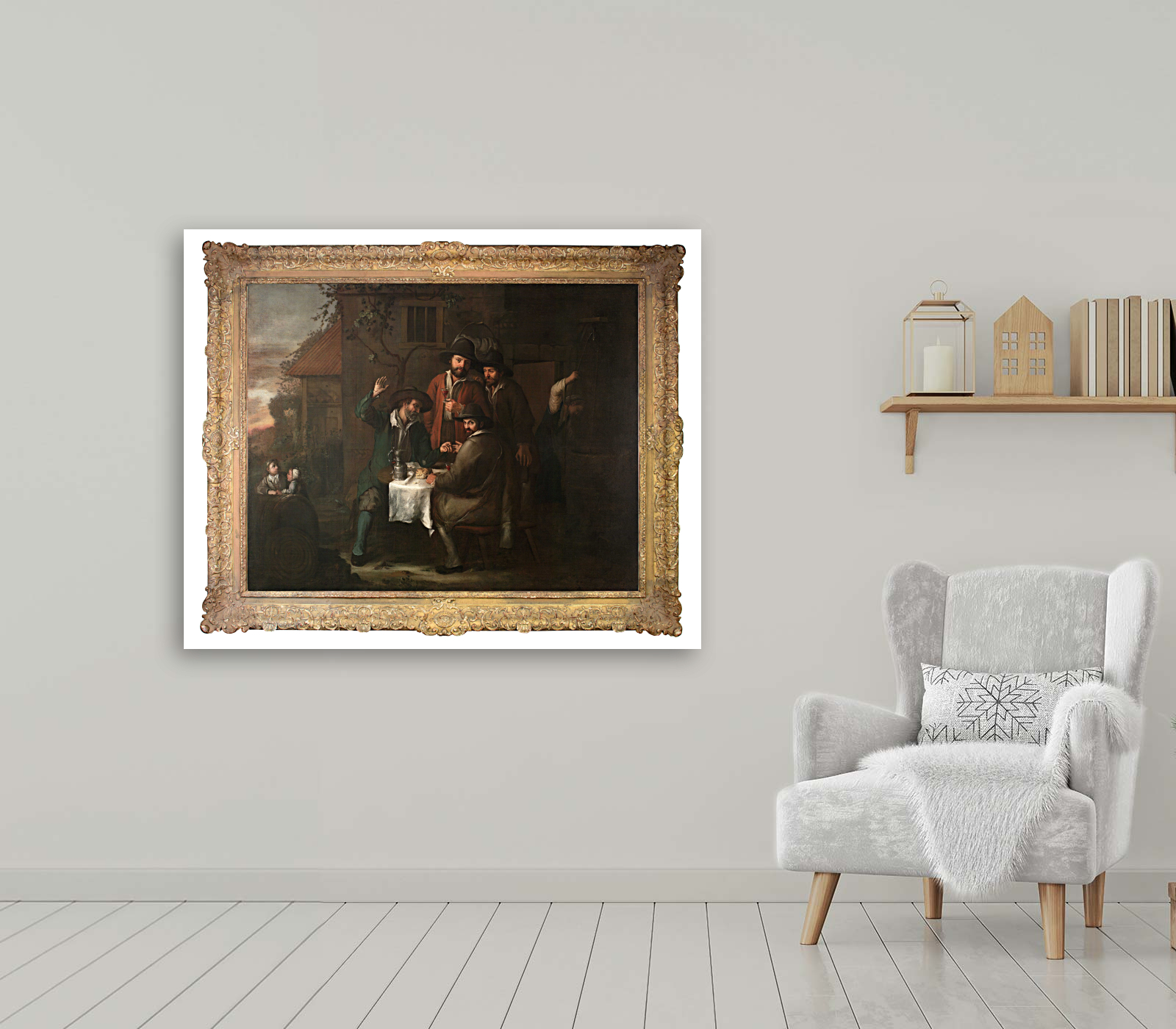The Fortune Teller
Abraham Willemsens
The Fortune Teller
Artist:
Abraham Willemsens
Medium: Painting
Price:
$761,250.00
Gallery:
David Barnett Gallery
Add to Favorites
Details
Materials: Oil on canvas
Dimensions: 53" x 65"
Finish: Framed
About the Item
c.1650-1672
About the Artist
Abraham Willemsens
The 17th century Flemish painter known as the Master of Beguins (1650-1680) was active around Paris from about 1650 to 1670. His work closely resembles that of the Le Nain brothers, whose style was extremely popular during the seventeenth century and widely sought after by collectors since. It was not until 1922 that several paintings formerly attributed to the Le Nain brothers were recognized as having a style that could only be the work of a distinct and unknown artist. The paintings that exhibited this distinct artistic personality were collected under the name of the 'Maître aux Béguins', a reference to the white cap or bonnet (béguin) worn by many of the women and children in the paintings. There are roughly twenty paintings attributed to the Master of Beguins, and they are found throughout prestigious private collections and museums, including several in the Louvre, the Art Institute of Chicago, and The Metropolitan Museum of Art in New York. The works of the Master of Beguins have been highly prized since the seventeenth century for their meticulous depiction of rural genre scenes, almost always set out of doors with figures grouped around a table or a well. The five men in "The Fortune Teller," seated around a jug of wine with glasses in hand, are meticulously painted with rosy faces. The woman at the well on the right side and the children in the left foreground are in shadow, drawing the viewer's eye to the object of the men's attention -- a jewel in the hand of the man on the left. The artist's use of color and contrasts between areas of light and dark hint of influence of the Le Nain brothers, though his choice of genre scenes from rural life is distinctly Flemish. Most likely, the Master of Beguins was a Flemish painter who settled in Paris and, recognizing the taste for the Le Nain brother's distinct style, successfully adapted it to his own choice of subject matter.
About the Gallery
David Barnett Gallery
The David Barnett Gallery is Wisconsin's premier gallery with the broadest range of art available in the region, including works of art that represent more than 600 artists. The gallery specializes in European and American masters, regional and nationally recognized artists and emerging artists. This gallery also offers museum quality custom framing, restoration, conservation, appraisals, printing, transportation and delivery.
Similar Artworks
Similar Artists
More from this Seller







 Facebook
Facebook
 X
X
 Email
Email
























